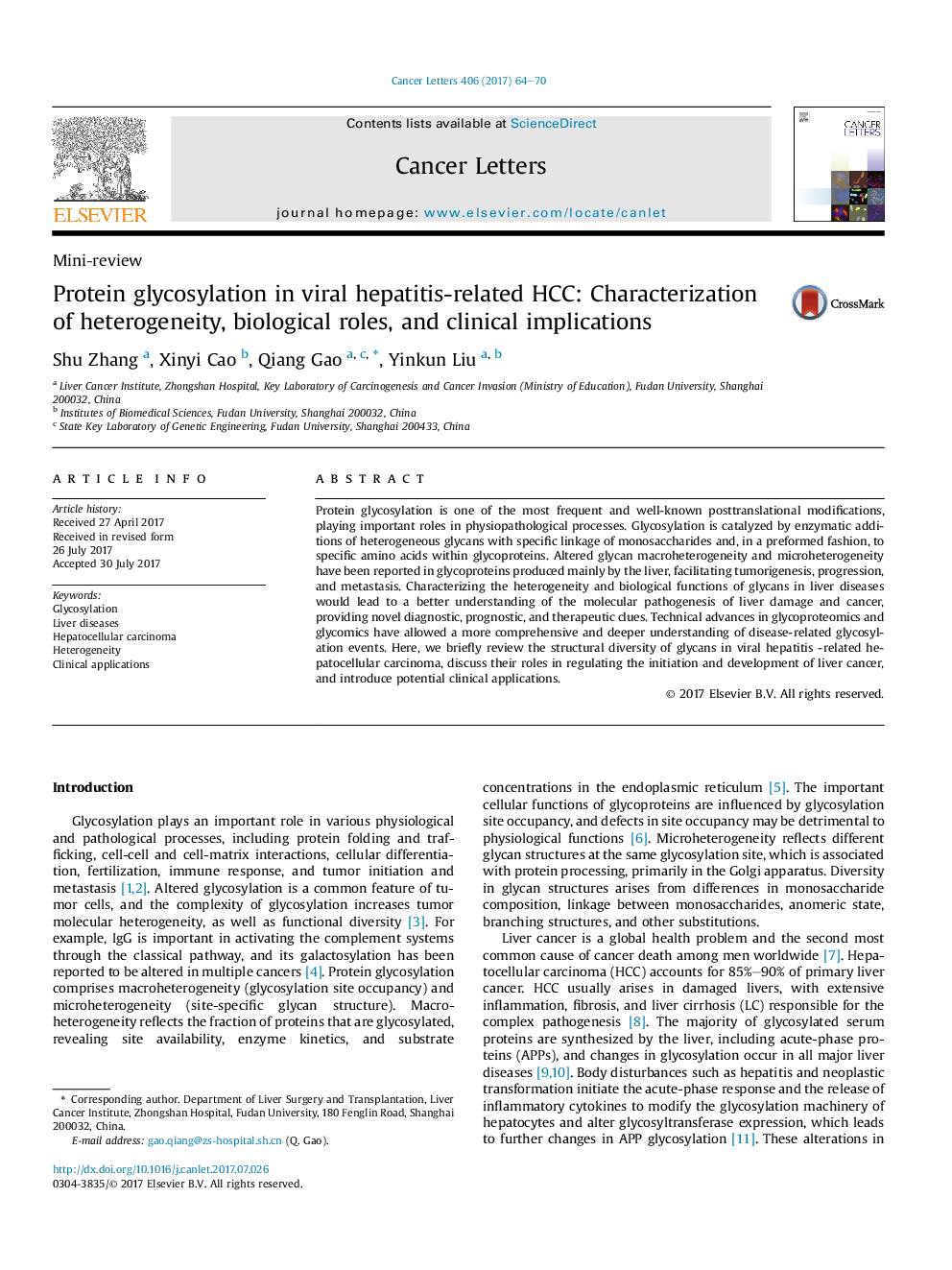| Article ID | Journal | Published Year | Pages | File Type |
|---|---|---|---|---|
| 5525348 | Cancer Letters | 2017 | 7 Pages |
â¢Protein glycosylation plays important roles in physiopathological processes including HCC.â¢Altered glycan heterogeneity has been reported in HCC, facilitating tumorigenesis, progression, and metastasis.â¢Characterizing the heterogeneity of glycans can provide novel diagnostic, prognostic, and therapeutic clues.
Protein glycosylation is one of the most frequent and well-known posttranslational modifications, playing important roles in physiopathological processes. Glycosylation is catalyzed by enzymatic additions of heterogeneous glycans with specific linkage of monosaccharides and, in a preformed fashion, to specific amino acids within glycoproteins. Altered glycan macroheterogeneity and microheterogeneity have been reported in glycoproteins produced mainly by the liver, facilitating tumorigenesis, progression, and metastasis. Characterizing the heterogeneity and biological functions of glycans in liver diseases would lead to a better understanding of the molecular pathogenesis of liver damage and cancer, providing novel diagnostic, prognostic, and therapeutic clues. Technical advances in glycoproteomics and glycomics have allowed a more comprehensive and deeper understanding of disease-related glycosylation events. Here, we briefly review the structural diversity of glycans in viral hepatitis -related hepatocellular carcinoma, discuss their roles in regulating the initiation and development of liver cancer, and introduce potential clinical applications.
